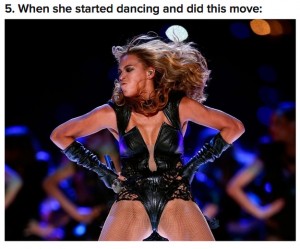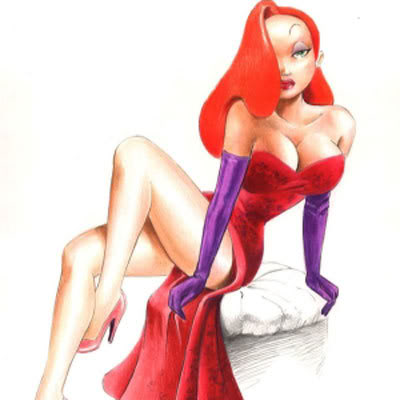What would it look like for women to truly, publicly, culturally claim our power over our female sexuality? Would it look like a typical male lap-dance fantasy? Would it look like holding it closer and more geared for our own fulfillment? Or do we even know? I’m ready to start trying to find out…
[Warning: there are a couple of explicit links in this post.]
In the last couple days, you may have read this and this, two profoundly thought-provoking blogs by David R. Henson describing Beyoncé’s Super Bowl half-time show as a “defiant dance of power, not sex” and then later addressing the onslaught of contrary commentary by humbly deconstructing his “blind spots”. (I highly recommend reading, especially for Henson’s brilliant Durga insight.) If you have, then you know there has been a fierce debate around the cultural consequences of Beyoncé’s performance. It elicited a valuable diversity of perceptions of not just the trappings, but of the deeper potential meanings.
Before I proceed, let me state up front that I am no hater of Beyoncé; I really like her. I have been a dancer most of my life, beginning at age 5 and studying, competing and performing extensively up until a few years ago in ballet, modern, jazz, tap, hip-hop/funk and everything in between. Beyoncé’s technique and passion as a dancer is phenomenal, and I understand it. My muscles twitch as I watch her because I recall so vividly the incredible freedom of using my meticulously trained body as an instrument, a powerful artistic device that told a story, that made an emotion into a visual experience. The feeling of taking the audience to another world with me for a brief moment was indescribable, and all the elements worked together: setting, costume, character, music, movement. Once we had all gone there together, it took a while for the vibe to wear off. Dancers know this well, it’s why we do it, it’s why it’s art, it’s why audiences pay to see it.
What I partly experienced Sunday evening was a woman who believes in the creative talent of women so fully that she had a strikingly fabulous all-female band and cast (a first for such a venue). I saw a woman who exemplifies a healthy, strong body image; a woman who just gave birth to baby girl and is redefining the concept of motherhood (although that may be easier for a multi-millionaire); a woman who is at the top of her career and calling the shots. I liked all of that, a lot.
But transporting your audience with your body comes with a responsibility for thoughtful decision-making, especially when you are a feminist and a woman of faith. And especially when it comes to how the lasting vibe you create will effect a specific viewership, including “the least of these”. Art is not just for the sake of the creator; arguably, it’s primarily for those who consume it in a given circumstance. I diverge from Henson when he says the Super Bowl is an adult show; I believe it is placed in network prime-time on a Sunday in order to be a family-gathering sporting event (the violence-is-what-it-means-to-be-a-real-man issue and the sexist commercials are another blog). But as celebrities kick off tours and networks fish for ratings, these artistic decisions are commercially trumped by business decisions about profit making. Although interestingly, CBS is saying that for the Grammys, they want the performers a tad more covered up.
Likewise, today Beyoncé seems to regret wearing a python-skin floss for her crotch-focused bits, as her publicist has been busy requesting that “unflattering” photos of the performance be removed from entertainment websites and news stories. Where’s the power in retracting bold decisions after you don’t like the images it created of you? You’re going to have to either stick by the outcome of your fierceness, or else think before you thrust.
Other images still-frame a scrunched-up face and wild hair as she punctuated her power-statements. You can see what I’m talking about here at Buzzfeed. I find the shots to be fantastic realism of a woman who is fully invested and believes in what she’s doing, without care for what others think. To me, these are the “f— you society and sexism” moments captured…yet she wants to censor these. Its a reminder that her image is a very carefully crafted and manipulated thing, meant to only portray her most seductive, “traditionally” beautiful moments. I’ve come to believe one relinquishes her power if she only allows herself to appear perfect to the rest of the world. If women wield REAL power, then it is certainly not always going to be a Cover Girl moment. And nor should we be too concerned about that fact.

All that said, let’s get to the sex, right?
Although in total I found the performance indeed powerful with a vibe of female self-direction and control, when I read Henson’s first post, I paused at these statements (emphasis mine):
“Few things are more threatening to a male audience than a beautiful, powerful woman who doesn’t need a man, or even a male gaze. …”
“So here, in the midst of commercials and a culture that objectified women and their bodies and in the middle of a sports spectacle that construes power in terms of violence, Beyoncé began her performance by upending the narrative. …”
“…walking as a woman, Beyoncé declared ownership of that stage — that stadium — and, more importantly, claimed ownership of her own body in the most misogynist and objectifying four hours of mass culture.”
I genuinely wish I could fully buy in to these statements. But a nagging, nuanced question started to burn within me, and it’s about the full story she was telling. And the other side of it.
Perhaps you have seen this. It is a video of extraordinarily talented 7-year old girls in a regional American dance competition wearing a scanty remake of some of Beyoncé’s previous costumes while stripper-dancing, leg-spreading, boob-flicking, and deep-squat crotch-thrusting to the song “Single Ladies.” Their technique is impeccable and their difficult fouette turns are amazing, but it also includes all of Beyoncé’s famous moves. I suggest watching it (at least twice) before we swim back in to the deeper end of the philosophical pond. [Warning: even though it involves children, it may not be appropriate for all children.]
Seven-year-olds Go Hard on “Single Ladies”

You back? You okay? I will leave you to your own assessment about how Beyonce has empowered aspiring little girls in their dance performance careers.
What may have become more apparent as you watched chubby-bellied 7-year-old baby girls basically solicit sex and perform a pole dance sans pole on stage, is that what you are seeing is a very explicitly male-dominated idea of female sexuality being performed. When we watch famous, powerful Beyoncé do it, she seems in control. But her body belies her, and tricks younger, less powerful girls, when she plays to the age-old stripper performance motif which has made its way into popular dance (and exercise) trends largely via big performers like Beyoncé. No offense to my stripper sisters — real strippers do it in a more limited, adults-only context, and for their own reasons that I am in no position to judge, even though I personally find the enterprise as a whole to perpetuate our “place”; and frankly, that’s not what I’m here to talk about. But factually, the arrangement for that particular job description is that strippers, pole- and lap-dancers are paid by men to perform in the specific ways and methods that men in particular get off on. Strippers receive money to perform erotically in order to sexually entice and (to some extent) fulfill their customers (primarily men), not necessarily to perform their own knowledge or idea of their sexual nature. When little girls are inspired to dance like Beyoncé and their goal is to “become like her” they are also unfortunately learning that tremendous wealth, success and fame comes from buying into and repeating a male-dominated sexual fantasy, and to be a “certain kind” of girl who wears a certain outfit, looks a certain way and moves a certain way that makes her desirable to… men. No need for a man? No male gaze she’s commanding? Huh?
If we were all completely honest — and many women have been outspokenly so — that version of our sexuality, when it comes down to it, doesn’t always do much for most women (check out sex stats about female pleasure — there’s a reason for the widespread knowledge that women generally “fake it” a lot while men rarely do). In long-held form, female gratification is often assumed to come from making the other party happy, and our personal enjoyment or fulfillment is very secondary in the minds of both parties (which is often still the outcome when women try to “take power” by re-creating the mainstream porn/stripper roles in their personal lives, because they see how much attention it gets from men generally in social culture). And even more importantly, there are not just physical repercussions, but spiritual ones that keep us from connecting, growing, loving truly and fully, maturing in confidence, and finding personal healthy boundaries / self-ownership. There are two facets to this: false empowerment and consequences of continuing to buy into it unquestioned. [Note that I do not claim to speak for all women, only to observe social constructs as a general whole, and also the women to whom I’m in proximity.]
First, it is still deeply entrenched into the minds of girls in our society that being attractive to the opposite sex is of the utmost importance (need I list all the ways? Another blog. Or see MissRepresentation). Therefore, when we find guys are attracted us, we feel a sense of pleasure, we feel rewarded for all the effort and energy we’ve put into being attractive to the opposite sex. If no guys pay attention to us, we feel like failures, and we get insecure. Hence a lot of the confusion many women feel over simultaneously buying up every cosmetic and padded bra in the world, while hating that men oppress us with these expectations, wanting so badly to defy them but also being way too scared of rejection to do so. When we act or dress a certain way, we know we get attention, we get doors opened for us, we even get certain valuable opportunities. If we choose to instead go inside ourselves, get to know ourselves and then rely on the strength of our realism and non-sensual value, we often get overlooked or even made fun of, shunned. Then we go into a shame spiral of self-loathing and all aspects of our life, not just relationships to the opposite sex, are affected.
For instance, recently a male friend stopped by to see me and my partner. I answered the door without any make-up on and my hair up in a clip. He said, “Whoa! Look at you! I’m going to have to tell the real Jennifer that Dave (my partner) is cheating on her with some other girl!” He then walked on down the hall and started a conversation with others, while I stood there feeling horrible. He implied that there are two “Jennifers”…one that is attractive in her makeup and with her hair done (the “real” one, apparently), and another one who is totally different, not worthy of being associated as the same person, maybe not even real. This came just as I was starting to look in the mirror with no mascara or lipstick and think, hey, I’m ok. I know that I am one woman…always the same person, both inside and out, but then here comes the “male gaze” trying to intimidate, make me feel less than, make me into one thing that is “theirs” and another that I only get to bring out when I’m alone. A female friend would never had said such a thing to me. No wonder women are confused and split into pieces. And that’s a small incident.
So when you hear women talk about feeling “empowered” when they engage in activities that make men drool, holla, and fawn all over them, you have to understand the back-handed power that we are indulging, and why. I don’t belittle us females for it, it is a huge part of who we’ve ben trained to be.
The second point has to do with the consequences of our game of false power we’ve played so as not to ruffle the pecking order over the centuries (no, millennia!) of men defining and controlling female sexuality (it was very popular in biblical times too with the virgin saint / devilish whore dichotomy). The first episode in the first season of the HBO hit Girls was initially criticized for a shocking portrayal of a seemingly gratuitous 20-something sexual encounter in which the guy treats the character Hannah like a piece of porn meat. He makes her go along with his fantasy that she is an 11-year-old girl with a Cabbage Patch lunchbox who he meets on the street (um, pedophilia?!) and otherwise talks disrespectfully to her and treats her like a doll prop while never considering how awkward and put-off she seems to feel … and he gets away with it. Some critics immediately assumed the script was sexist, even though it is written by the exquisite Lena Dunham, a talented, fearless 26-year old woman.
Then it hit everyone that the scene was just simply showing what actually happens to so many young women in their experiences of sexual intimacy — that it is not in fact intimate or even satisfying, but rather a female-interchangeable consumer sport in which “the man aggressively pursu[es] his desires, and the woman do[es] whatever she can to enable those desires”, according to a Slate article about the controversial episode. [WARNING: VERY EXPLICIT MATERIAL IN THE SLATE ARTICLE, but I find it important for mature adults to consider.] If it seems absurd, understand that the show makes an honest statement about how we are socializing boys to see girls as unfeeling props to serve their (sometimes humiliating) desires that have now gone mainstream in the everyday-porn culture, while socializing girls to believe that they will either reap rewards from playing into it at whatever level, or that they will be unwanted and alone forever unless they go along with it. Of course, not all men are like that (not all men even want that) and not all women succumb to it, but if Girls is indeed a cultural marker of Gen. Y and Millennial experience, it’s quickly becoming even more prevalent.
Is this what we want to perpetuate? Is that what women deserve, both in our experience of sex, and in our greater holistic experience of being? Women deserve to be able to truly enjoy sex too, in all the ways we uniquely want and need to experience it. Yet we also deserve to be able to be a whole person, physically and spiritually, without being dismissed if we do not conform to the over-sexualized ideal that is currently status quo. But men and media aren’t going to do this for us. We have to have the courage to take it all back for ourselves, to engage it only when it is good, healthy, fulfilling, meaningful, and treated as the sacred gift it is. The individual women who hold their own power over their sexuality and their being recognize it when they personally experience it, but our current cultural narrative tries to make us think that it doesn’t exist, or that we can’t actually have it.

From Beyonce to Girls, there is an extremely wide range of the level of provocative sexuality. But I would argue that Lena Dunham does the issue the most justice, even with the nudity and explicit nature of the dialogue and the scenes, because she is honest. She is not celebrity-sugar-coating the suffocating box of male-constructed, female sexual demonstrations that we are operating within in our society; instead she is exposing it for its daunting, confusing, scary rawness, and some of its consequences too. On the other hand, Beyonce makes it just sparkly and palatable enough that little girls end up acting it out live on stage and for millions of YouTube watchers. And the likelihood rises that eventually they will incorporate it unquestioned – upon experiencing the faux rewards – into their own lives.
What are we teaching girls about their purpose as human beings, about who owns their sexuality, about who dictates their value, and the importance (or enforced insignificance) of their own future fulfillment and standards?
What would the world look like, how much better would it be in every way, if women could feel powerful, confident, beautiful, lovable and empowered even when we dare to step out of the male-construct box?
Although many women, including myself, have an experience of being with a committed partner who loves them as they are, I’m sadly having a hard time imagining it on a broad, societal level. But one thing I do know, is that we are not truly claiming power if we only try to claim it within the culturally pre-sketched, male-dominated framework of female sexuality. Rather, we’re claiming the power they are willing to give us, the power that also still pleases primarily men and benefits that system. If women think about what benefits us, and what is true to the God who created us as sexual and yet whole beings, I imagine something beautifully, magically different will happen when we finally do. And it is very much worth imagining into being.
See, this isn’t about Beyoncé. It’s about the rest of us.











